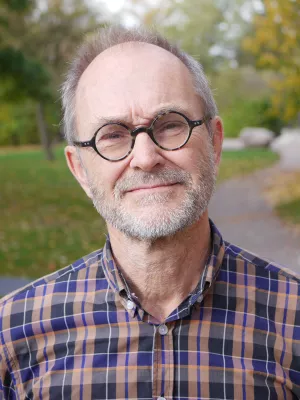
Lennart Olsson
Professor, Docent

A smoke-free kitchen: initiating community based co-production for cleaner cooking and cuts in carbon emissions
Author
Summary, in English
Cooking over open fire with solid fuels results in incomplete combustion and indoor air pollution (IAP) causing respiratory and other diseases leading to nearly two million premature deaths per year. In urban areas, IAP interacts with outdoor pollutants in toxic chemical mixtures affecting also other citizens and damaging regional air quality in terms of 'brown clouds'. Deaths result mainly in women, children and infants, who are directly exposed to smoke in unventilated kitchens, thus reflecting differentiated and unequal impacts across population groups. Despite the heavy health burden and discomfort, IAP has only recently been recognised as associated with neglected diseases. In search of synergies between adaptation and mitigation, we seek gender sensitive social innovations to halt smoke, soot and early death while reducing deforestation and carbon emissions. Using transition arenas as a participatory method for experiments and social learning we engaged with local entrepreneurs and peasant farmers in subSaharan Africa to initiate co-production of efficient flue-piped stoves that save energy, labour and lives. Findings indicate that successful design, production and adoption of improved cooking stoves is possible, but the structural challenges of poverty, inequality and distrust may inhibit further diffusion and more profound processes of social learning. Insights from local studies must therefore be contextualised into broader understandings, as attempted here, while local adoption must be combined with wider initiatives and government policies into.complex micro-to-macro solutions that provide forceful effects against IAP and its drivers. (C) 2012 Elsevier Ltd. All rights reserved.
Department/s
- LUCSUS (Lund University Centre for Sustainability Studies)
Publishing year
2013
Language
English
Pages
208-215
Publication/Series
Journal of Cleaner Production
Volume
60
Document type
Journal article
Publisher
Elsevier
Topic
- Social Sciences Interdisciplinary
Keywords
- Climate change
- Cooking
- Gender equality
- Global health
- Improved
- stoves
- Indoor air pollution
- Neglected diseases
- Resources-sociology
- Respiratory diseases
- Social norms
- Soot
Status
Published
ISBN/ISSN/Other
- ISSN: 0959-6526